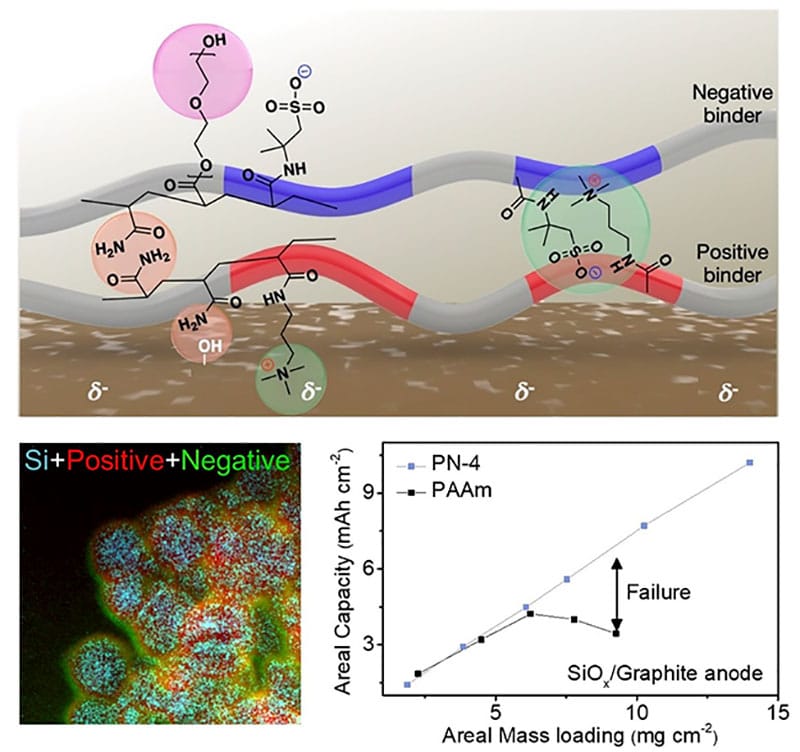The market for electric vehicles (EVs) has grown rapidly in recent years and is expected to continue to grow at a fast pace over the coming decade. Inevitably, the demand is growing for high-capacity batteries that can extend EV driving range.
Recently, a team of researchers from POSTECH and Sogang University has developed a revolutionary technology that could boost the current electric car range by at least ten-fold.
Led by POSTECH professors Soojin Park and Youn Soo Kim and Professor Jaegeon Ryu of Sogang University, the research team developed charged polymeric binder for a high-capacity anode material that is both stable and reliable, offering a capacity that is ten times or higher than that of conventional graphite anodes. The breakthrough was achieved by replacing graphite with Si anode combined with layering-charged polymers while maintaining stability and reliability.
High-capacity anode materials such as silicon can offer at least ten times the capacity of graphite or other anode materials now available. The challenge here is that the volume expansion of high-capacity anode materials during the reaction with lithium poses a threat to battery performance and stability. To mitigate this issue, researchers have been investigating polymer binders that can effectively control volumetric expansion.

The new polymer utilizes hydrogen bonding but also takes advantage of Coulombic forces – the force of attraction or repulsion between two like and unlike charges, respectively. These forces have a 250 kJ/mol, much higher than that for hydrogen bonding, yet they are reversible, making it easy to control volumetric expansion.
The high-capacity anode materials surface is mostly negatively charged, and the layering-charged polymers are arranged alternatively with positive and negative charges to effectively bind with the anode. Additionally, researchers introduced polyethylene glycol to regulate the physical properties and facilitate Li-ion diffusion. This results in the thick high-capacity electrode and maximum energy density found in Li-ion batteries.
“The research holds the potential to significantly increase the energy density of lithium-ion batteries through the incorporation of high-capacity anode materials, thereby extending the driving range of electric vehicles. Silicon-based anode materials could potentially increase the driving range at least tenfold,” explained Professor Soojin Park.
Journal reference:
- Dong-Yeob Han, Im Kyung Han, Hye Bin Son, Youn Soo Kim, Jaegeon Ryu, Soojin Park. Layering Charged Polymers Enable Highly Integrated High-Capacity Battery Anodes. Advanced Functional Materials, 2023; DOI: 10.1002/adfm.202213458
New battery technology could boost EV range by at least ten-fold
Source: Tambay News

0 Comments